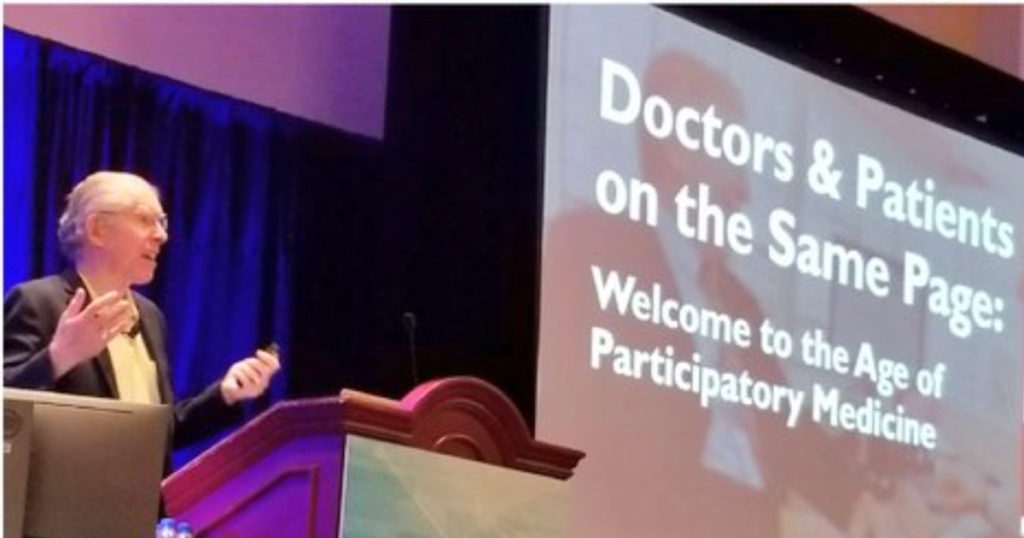Speaking isn’t just a business – it’s a vehicle for accomplishing what we really need: changing how people think … especially, empowering them to take effective action, to become involved in their health. Here’s a photo from a speech to radiologists, encouraging them to share images with patients:

Similarly, last week in a virtual event, I spoke for Virginia Commonwealth University about clinical trials. The audience was librarians – “the people who people turn to” when they’re looking for information. Perfect. In designing the talk with VCU project staff, we agreed that a great approach would be around my fundamental principle: “Patient is not a third person word. Your time will come.”
Toward that end, this talk was crafted to encourage librarians to think like the people who seek their advice … and to see the relevance in their own lives, their own families:
- Knowledge truly is power. Librarians are the guides.
- Patient is not a third-person word. Your time will come.
- For most medical problems the answer is clear. But at the fringe of knowledge, you can help.
“The fringe of knowledge” often includes clinical trials. Here I cited my college friend Janet Freeman-Daily, whose clinical trial helped save her life, as mine saved mine. (Happily, we had met up at a reunion during my cancer year, which was useful to her later!)
The VCU speech – and discussion
Here’s the whole recording – 90 minutes including discussion.
Great discussion starter: “What surprised you?”
In his best-selling book Tiny Habits, the great Stanford psychologist BJ Fogg says he likes to end each lecture with the question, “What surprised you?” What a wonderful way to get people to focus on what they just learned that will help them see differently. So that’s what I did to start the discussion at 53:15.
Here are a few highlights people submitted in their evaluations, in response to “What do you intend to do with the information you learned from the program?”
- “Share what I learned with other nurses to empower their patient to be more active in their healthcare decisions”
- “Will be sharing resources with my patients to empower their engagement.”
- “It will help me work with patrons at the Health and Wellness Library and to help others locate information. You can never learn too much!”
- “I intend to check my health record a little more closely. I always put my trust in doctors but now knowing that our records aren’t always accurate, it’s important to know I have the right to check them.” I especially like this one because it illustrates my fundamental principle: “Patient is not a third-person word.”
- “for the patient to empower themselves to encourage the sharing of information – so instead of ‘stay off the internet’, provide them a known great resource on the internet to connect the patient to others like themselves for Q&A.”


Leave a Reply